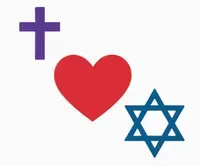
Religion and Worldview Policies
| Name | Format | ||
|---|---|---|---|
| Files | |||
| Religion and Worldviews Progression of Vocabulary 2025-26.pdf | |||
| Religion and Worldviews Progression of Skills 2025-26.pdf | |||
| Religion and Worldviews Overview 2025-26.pdf | |||
| Religion and Worldviews Long Term Plan 2025-26.pdf | |||
| Religion and Worldviews Intent Implementation and Impact 2025-26.pdf | |||
🌍 Religion and Worldviews (RE)
Our Approach
At Stanton Primary School, Religious Education helps children explore beliefs, values, and traditions from around the world. From Reception to Year 6, pupils learn to reflect on their own ideas while understanding and respecting those of others.
We follow Kapow Primary’s Religion and Worldviews scheme, which provides a clear learning journey across the school.
What children learn:
-
About religions and worldviews: Stories, beliefs, and practices that guide people’s lives.
-
Personal reflection: Thinking about their own ideas on life, meaning, and belonging.
-
Understanding and enquiry: Asking questions, comparing beliefs, and considering different perspectives.
This approach ensures children revisit key ideas each year, gradually building confidence and understanding.
📘 Curriculum Overview
Reception
Children explore what makes people, places, stories, and objects special. They learn through stories, play, and discussions:
-
What makes people special
-
Why certain places and stories matter
-
How celebrations and special times bring people together
Units include:
-
What makes us special?
-
What are special times?
-
Why are some places special?
-
What makes the world special?
-
Why are some things special?
-
Why are some stories special?
-
Time to celebrate
Linked to the EYFS Early Learning Goals.
Key Stage 1 (Years 1–2)
Pupils begin to ask bigger questions about belief and community.
Year 1:
-
Understanding care, creation, and how people show their beliefs.
-
Exploring Christianity, Judaism, Islam, Hinduism, and Zoroastrianism.
Year 2:
-
Learning about gratitude, prophets, prayer, and sacred spaces.
-
Comparing practices across faiths.
Key themes: Beliefs, Practices, Wisdom and Morality, Belonging.
Lower Key Stage 2 (Years 3–4)
Children deepen understanding of identity, spirituality, and morality.
Year 3:
-
What it means to be human
-
How people decide what is right
-
Symbolism of water and fire
Year 4:
-
Sacred texts and their significance
-
Commitment to beliefs
-
Life and teachings of Jesus
Children begin comparing different faiths and thinking about how traditions shape communities.
Upper Key Stage 2 (Years 5–6)
Pupils explore larger moral and philosophical questions.
Year 5:
-
Standing up for beliefs
-
Life after death
-
Global diversity in Christian and Buddhist practices
Year 6 – Community and Belonging (Islam focus):
Children explore how shared faith and practices create belonging:
-
How communities respond to suffering
-
Pilgrimage and sacred places (Hajj and beyond)
-
Shared practices and identity
-
Comparing Jewish, Christian, and Buddhist perspectives
-
Reflection on religion in the modern world
Progression and Flexibility
-
Builds knowledge and understanding step by step from Reception to Year 6
-
Revisits key ideas each year for confidence and depth
-
Flexible lessons that can link to other subjects or local priorities
-
Updated regularly to reflect curriculum changes
✨ What Children Take Away
By the end of primary school, pupils will:
-
Understand the beliefs and practices of major world religions
-
Reflect on their own values and ideas
-
Respect and engage with people from different beliefs
-
Appreciate how communities and shared practices create belonging
Our RE curriculum equips children to think carefully, understand deeply, and engage respectfully with the world and the people in it.





